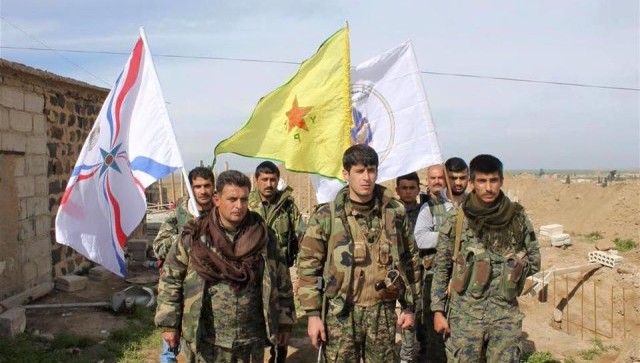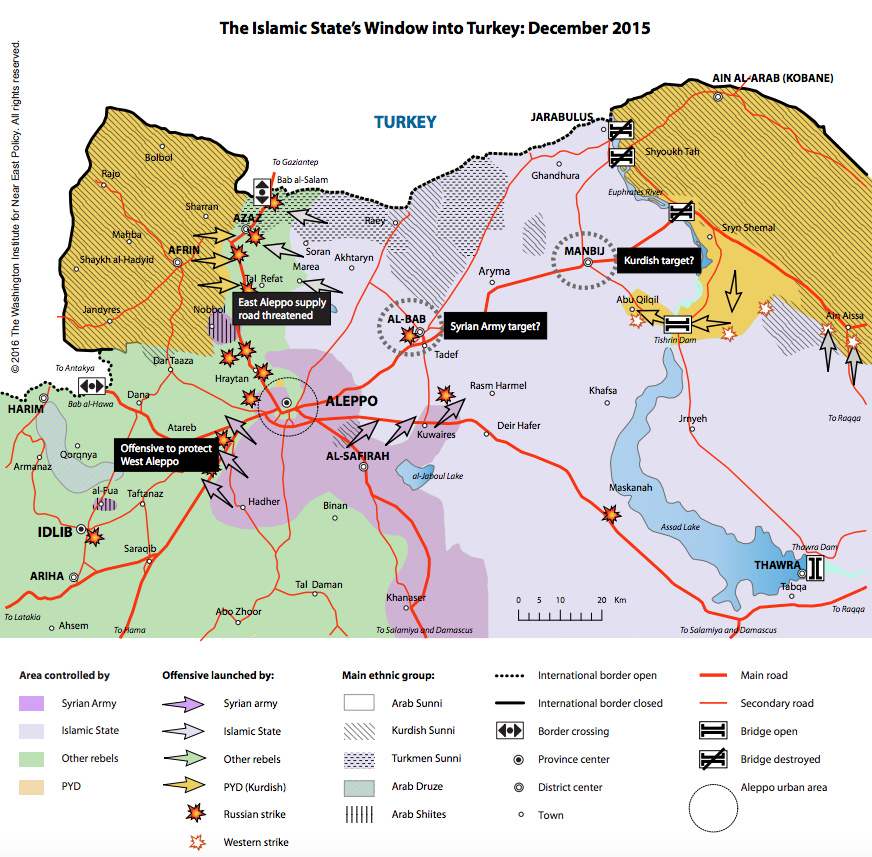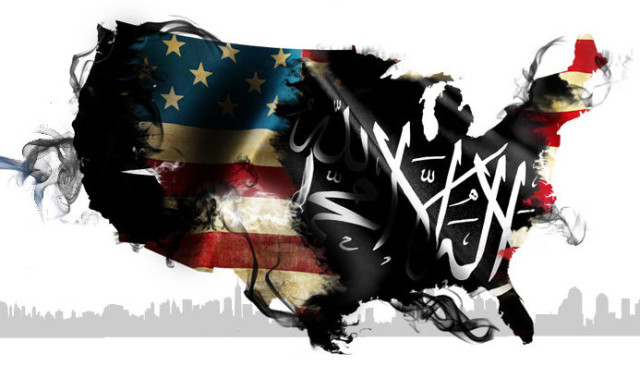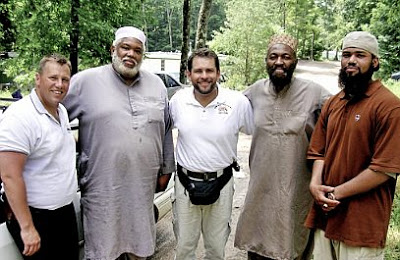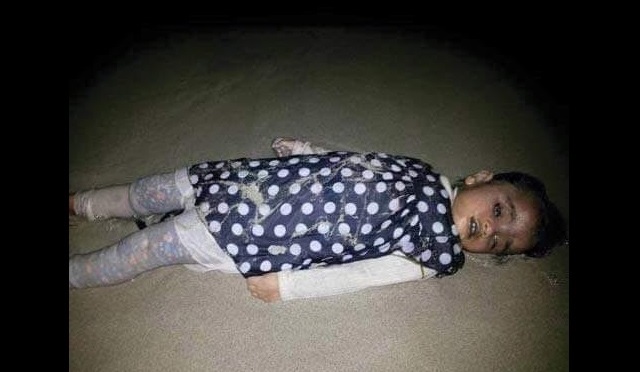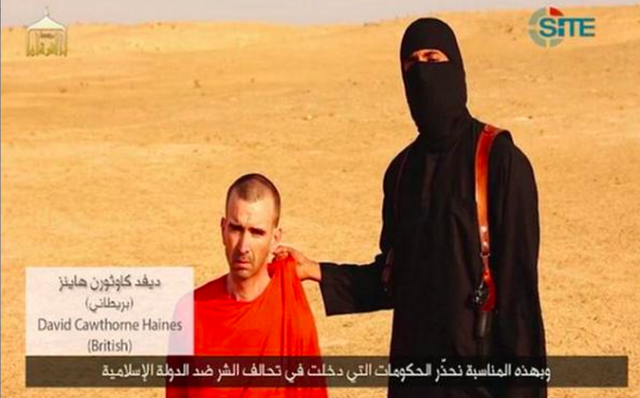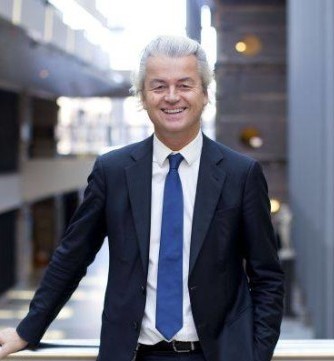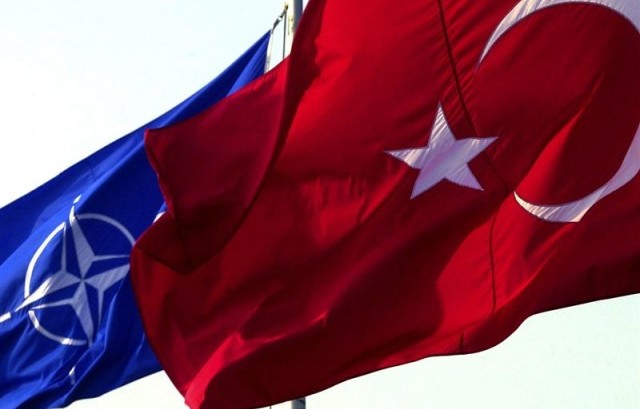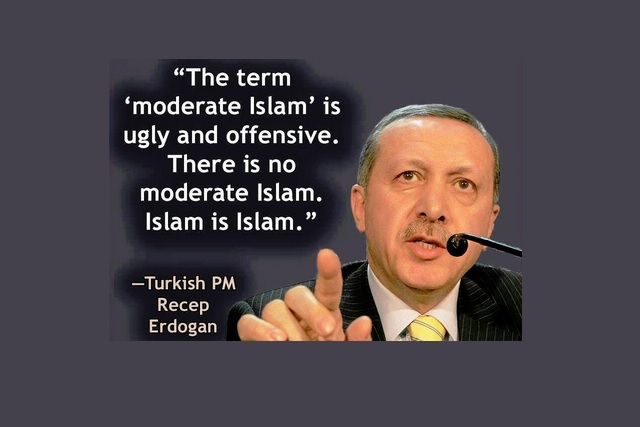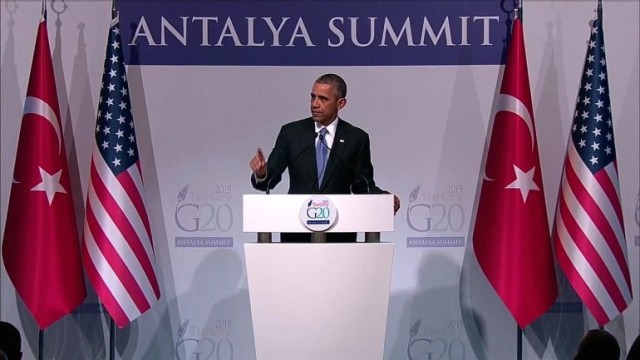In the waning months of the Obama Administration, its lack of effective leadership in the war against the Islamic State and the civil war in Syria created a potentially dangerous power vacuum. The White House was pre-occupied with concluding a UN-endorsed pact, hoping to rein in Iran’s quest for a nuclear capability – a capability that a number of analysts have concluded it may already have. Purported cooperative development may have been behind North Korea’s fourth nuclear test since 2006 on January 6, 2016. While official propaganda from Pyongyang suggested that the test involved elements of a possible fusion or hydrogen bomb, a few astute observers suggested it might have been a so-called boosted fission weapon. It was likely a nuclear warhead for a missile. Iran has derived test data and been a customer for North Korea’s missile technology. Iran violated UN sanctions and JCPOA bans against missile tests with the launch of two precision guided missiles in the Persian Gulf in October and November 2015. In late December, Iranian Revolutionary Guards naval forces staged a live fire missile exercise provocatively firing less than 1,500 yards from the USS carrier Harry S. Truman, accompanying destroyer, the USS Bulkley and a French frigate.
Mahdist Iran had endeavored to assert its hegemony in the Middle East encircling Saudia Arabia and the Sunni Gulf States by supplying Revolutionary Guards and proxy Hezbollah forces in support of the beleaguered Assad regime in Syria. Further, Iran had lent Quds force leadership to provide technical assistance to Iraqi Shia militias in the conflict with the Islamic State in Iraq. Both countries had squared off in Yemen with Iran supporting the Shia Houthi rebels while Saudi forces supported the overthrown government. These roiling geo-political conflicts between Iran and Saudi Arabia, two major oil producers in the Gulf Region, came to a flash point in early January 2016. The Saudi Wahabbist regime in Riyadh summarily executed a long held dissident Shia Imam. That provoked a torching of its Embassy in Tehran by Basij paramilitaries loyal to Ayatollah Khamenei.
These actions resulted in a break off of diplomatic relations between these two Islamic countries. Both propound extremist Qur’anic doctrine and interpretations of sharia (Islamic law) that have origins in the contending meta-narratives of the Muslim prophet Mohammed’s succession. The Shia in Tehran contend that the rightful inheritor of Islam’s jihad should have been the prophet’s son-in-law Ali, killed at the battle of Karbala in what is now Iraq. The Sunni Wahabbists in Riyadh contend the rightful successor to be one of the early Caliphs and companions of Mohammed, Abu Bakr.
It is not without precedent that former Al Qaeda in Iraq leader Abu Bakr al-Baghdadi chose that name when he declared the Islamic State during of the Civil War in Syria. Al-Baghdadi’s Islamic State put out the call to the global sunni ummah, gathering more than 30 to 40,000 foreign fighters and settlers to experience seventh century pure Islam in a renewed jihad to restore the Caliphate. That jihad created a virtual state the size of Britain that burst the borders between Syria and Iraq armed with US and Russian weapons captured from fleeing Syrian and Iraqi forces. The Islamic State has its own Sharia law courts, and a treasury filled with plundered gold and cash. These are funds from sales of smuggled oil, jizya taxes collected from conquered subjects and human trafficking of enslaved religious minorities like the Yazidis and Christians in Iraq and Syria.
The barbarous beheadings and crucifixions of infidels were grisly props for the Islamic State prompting millions of refugees and internally displaced persons to flee to sanctuaries in Turkey, Iraq, Jordan and Lebanon. One million of those refugees from the hot spots across the Muslim Ummah made treacherous crossings of the Mediterranean. They burst the borders of the open Schengen system in a new Dar al Hijrah immigration wave deepening the Islamization of Eurabia. Among that stream of asylees were ISIS foreign fighters who became shahids, martyrs, in the November 13, 2015 Paris massacres that claimed the lives of 130 and hundreds of injured innocent civilians at open air cafes, a music hall and outside a soccer stadium. Less than a week later the Belgian-born ISIS commander and other jihadis who participated in the attack were killed in a shootout with French police swat teams in a Paris suburb. Now we have the release of an ISIS video showing the nine attackers beheading hostages and training for the Paris attacks orchestrated by the Islamic State.
Into the cockpit of the Syrian civil war in September 2015 came Russian President Putin. He sent Russian forces to establish airbases and launch air assaults against Syrian opposition forces from the Alawite bastion of Latakia with its Mediterranean naval base. Putin, fresh from his adventures in both Crimea and Eastern Ukraine, entered the fray to prop up Russian interests in Syria and President Assad. The downing of a Russian Metro-jet flight on October 31, 2015, in an alleged terrorist bombing by an Islamic State affiliate in the Sinai Peninsula of Egypt, resulted in the deaths of 224 civilians and air crew aboard. The Islamic State propaganda machine claimed responsibility for the bombing. That resulted in extending Russian air assaults to target the Islamic State, especially its administrative capital of Raqaa in Syria.
However, it was the downing of a Russian Su-24 bomber by a Turkish F-16 jet fighter on November 24, 2015, ordered by Turkish President Erdogan that ratcheted up the geo-political conflicts in the Middle East. The Russian plane had purportedly penetrated Turkish airspace for less than 20 seconds. The Russian flight had targeted Syrian Turkmen opposition forces in the border region with Turkey. Putin called Erdogan’s action “a stab in the back” and would not accept his “apology.” Putin promptly cut off diplomatic contact imposing sanctions on significant trade between the two countries. That included Putin suspending construction of a $12 billion pipeline deal with Erdogan. Erdogan had clearly miscalculated. That sent Erdogan scrambling to replace it with Israeli offshore gas from its Mediterranean fields amid talks about renewing diplomatic relations cut off after the Mavi Marmara Free Gaza flotilla incident in 2010.
Putin put out word to Syrian Kurdish YPG-led forces that it would provide air support by establishing an air field at Qumishli in the Kurdish enclave of Rojava in northeastern Syria. The YPG-led Syrian Democratic Forces captured a key Euphrates River Dam in late December 2015. It was given offers from the Russians of air support to assist it in closing the Turkish border to join up with the western enclave of Afrin. The Turks in turn began military preparations on their side of the border. Erdogan is engaged in an internal operation against the YPG affiliated Turkish Kurdish Workers Party (PKK), that Turkey, the EU and we have designated a terrorist organization.
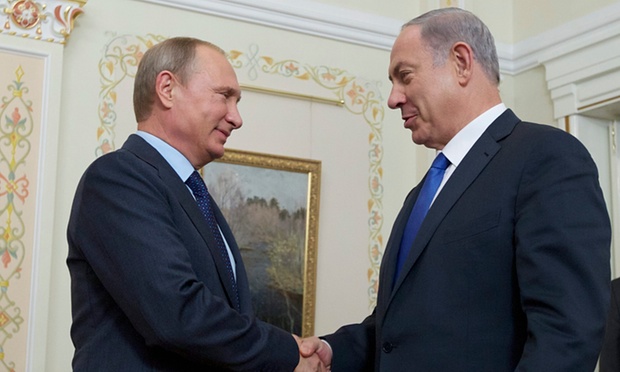
Russian President Putin and Israeli Prime Minister Netanyahu, Moscow September 2015.
That left the Israelis, concerned about Al Qaeda, Iran proxy Hezbollah and ISIS ranging on all of its borders. Of special concern is the threat on Israel’s Northern border with Lebanon and Syria, but also its Southern border with ISIS affiliates in the Egyptian Sinai. Israeli PM Netanyahu and several top military and security aides flew to Moscow on September 21, 2015 to establish a mutual understanding with Putin over national security issues in Syria. Israel would continue to attack shipments by Syria and Iran to the latter’s proxy in Lebanon, Hezbollah. Putin has no agenda involving Israel. Netanyahu was immediately concerned with a low-intensity terror war waged daily since September 2015 by Palestinians and some Israeli Arabs allegedly incited by Palestinian Authority President Mahmoud Abbas. The Palestinian and Israeli Arab violence has claimed 28 Israeli, US and foreign migrants dead and dozens injured from knifings, car rammings and shootings. 149 Palestinians have been killed by Israeli security. In one troubling case, in January 2016, an Israeli Arab using a semi-automatic weapon at a Tel Aviv café killed three persons. He fled the scene and was eventually tracked by Israeli security forces to his home area in Northern Israel and killed.
On the weekend of January 17, 2016, the UN nuclear watchdog agency, the IAEA, announced that Iran had complied with the JCPOA declaring the start of Implementation. President Obama released to Iran upwards of $100 billion in impounded Iranian oil revenues held in several foreign banks. As a result of a 14 month long secret negotiation, four Americans hostage and an American student were released in exchange for clemency for seven Iranians, six, dual US citizens and one Iranian national. They were convicted or charged with engaging in illicit procurement of sensitive technology. Subsequently it was revealed that $1.7 billion had been wired to Tehran in what Congressional critics called a “ransom payment.” In the week prior to these dramatic developments, 10 US sailors and their Riverine command boats wereseized by Iranian Revolutionary Guards’ naval forces and held for 24 hours on Farsi Island in the Persian Gulf waters controlled by Iran.
Against this background, we convened another in the series of 1330 AM WEBY international Middle East Round Tables with Daniel Diker, a Fellow and Project Director for Political Warfare at the Jerusalem Center for Public affairs, a columnist for The Jerusalem Post and Shoshana Bryen, senior director at the Washington, DC-based Jewish Policy Center.

Michael Bates
Michael Bates: Good afternoon and welcome to Your Turn. This is Bates. We are doing our special periodic International Roundtable about what is going on in the Middle East and I have joining me in the studio, Gordon, Senior Editor of the New English Review and its blog, The Iconoclast. Welcome, Jerry.
.jpg)
Jerry Gordon
Jerry Gordon: Glad to be back, Mike.
Bates: Joining us by telephone, Shoshana Bryen, Senior Director of the Jewish Policy Center in Washington. Shoshana, welcome back.

Shoshana Bryen
Shoshana Bryen: Thank you.
Bates: And, from Jerusalem, Israel, Dan Diker, head of the Political Warfare Program at the Jerusalem Center for Public Affairs and a columnist forThe Jerusalem Post. Diker, welcome.

Dan Diker
Dan Diker: Shalom to you and Florida from Jerusalem.
Bates: Shalom. Question, I’ll open with you, Dan. What is the security situation in Israel right now? I’m reading a lot about more of daily attacks, shootings and stabbings, I don’t want to say small time because if you’re the victim it is pretty significant. But, it doesn’t appear from this vantage point in any way that it is a full blown intifada with suicide explosives going on. What are you seeing in Israel right now?
Diker: Mike, it is a very good lead in to the question because the signs are not pointing to a third intifada which in Arabic means “uprising.” These are “Lone Wolf Attacks” that are suggestive of network terrorism. The kind of terrorism that we saw in Paris recently. However, most of the attacks here have been stabbings or car terrorism – running over victims with cars. We finally saw in the last week and a half a meaningful shift in the type of sophistication of attacks. One Israeli Arab terrorist was neutralized by Security Forces just a few days ago, after they took a little over a week to find him up in Northern/North Central Israel. His methodology was suggestive of ISIS and Al-Qaeda in that he wore a black outfit and his shooting attack was very reminiscent of what we saw in some of the Paris attacks. This type of attack had enormous cognitive echo effect frightening Israelis throughout the entire country. The fear factor was rather extraordinary because security forces could not find him for seven days which was quite unusual for Israel. I do think that last week’s shooting attack on Dizengoff Street, which is one of the main streets in Tel Aviv, was a concern of people here because it is rather easy for people to get their hands on an M-16 or another automatic weapon and just fire indiscriminately as he did into a Tel Aviv bar. So, that has really created concern, deep concerns here, and has had a profound psychological effect on the population. Overall, bottom line though, Mike, terrorism is at a reasonable level, even though it sounds strange to say that. It is not at a front burner level, the flames are not super high, Security forces, as well as citizens legally carrying firearms, especially in Jerusalem and in the Gush Etzion have done a good job in killing terrorists when they try to stab Israeli children, men and women. So, things are at a reasonable level. The psychological effect though has been stronger following the last shooting attack in Tel Aviv.
Bates: If these attacks are being done by Lone Wolf operatives, how can the Israel security forces predict or prevent them because it’s not like they are intercepting communications from the conspiracy. It’s all in the guy’s head. So, does that complicate things?
Diker: It certainly does. In fact, this type of Lone Wolf network terrorism is very difficult for Security Forces to use traditional lines of Intelligence in order to snuff this out and prevent it before it happens. There are strong signs that Hamas has been directly involved in the planning and in the directing of some of these attacks, not the majority, but Security Forces and Intelligence Services have been focusing on what it requires to address this type of terrorism. What it requires is very quick reaction on the part of Israelis in the street. If you come to Jerusalem, you will see the epicenter of the 240 attacks in the last 3 1/2 months. I would say well over 200 have been in Jerusalem and the surrounding area. I’m actually speaking to you directly from Gush Etzion, which is a bedroom community of Jerusalem. Here, there have been 20 to 25 attacks within five minutes from where I live in the very intersection where people go to fill up their cars with gas or take their children to schools. I take my daughters to school there every day and there you can see soldiers from very top units stationed about 15 feet, one from the other around a traffic circle. People here are legally able to carry firearms as you have thousands of people in Jerusalem. It really requires this quick type of response because traditional Intelligence-top down Intelligence – is not quite as effective against this type of terrorism.
Bates: Are the perpetrators of these attacks Arab Israeli citizens. Clearly they’re not coming from Samaria and Judea through the wall, right?
Diker: There is a breakdown of the 240 attacks. The majority have been Palestinian Arabs from areas in the West Bank, in Judea and Samaria
Bates: Oh, okay.
Diker: Where Jews and Arabs live together, they are on the Israeli side of the security barrier; however, others of them are Palestinians. There are some 100,000 Palestinians from the Palestinian controlled areas of the West Bank that cross into Israel every day to earn 2-3 times from the Israeli employers what they would be earning from their Palestinian Authority employers. That illustrates the kind of risk that Israel is still prepared to take upon itself in order to ease Palestinian area employment problems. They still allow 100,000 Palestinian workers to come into Israel every day and some of those have been found to be knife terrorists. Others of them have been Jerusalem Arabs who are not citizens of the State. However, they receive all of the social benefits of Israel Arabs although they live in Jerusalem in areas that have not yet been decided whether they will become Israeli citizens or whether they will stay under Palestinian Authority control. The minority of these attacks has come from Arab Israeli citizens and there is a real question as to why. Many believe that the vast majority of Israeli Arabs are loyal to the State of Israel. They want to work and get ahead and send their children to good schools and flourish in the democratic Jewish State of Israel. That is the way things are looking right now.
Gordon: Shoshana, Prime Minister Netanyahu made an announcement this week regarding the fact that he wants the rule of law for one state and not two peoples. What did he mean by that and what kind of initiatives did he announce?
Bryen: Actually I’m going to send most of that question back to Dan who deals it on a more day to day basis. Essentially what the Prime Minister said was for Israeli Arabs and for Israeli Jews, you have one national grouping and you need one set of laws. There is a concern in Israel that Israeli Arabs are often held to a lesser legal standard than Jews. You see it most definitely in the housing field. The Israeli Arabs build houses without legal Israeli Government permits and, these are people who are full citizens of the State. They ignore the laws that they don’t care to obey. This kind of general lawlessness, this ability to say that I don’t have to follow the laws of the State gives rise to people who will either attack Jews or in some other way undermine the State. The Prime Minister was saying, “One people, one national people, one set of laws.” As Jews are held to a standard, Arabs have to be held to the same standard inside the State of Israel.
Gordon: Dan, do you have a response to that?
Diker: I think that Shoshana makes the basic point in a very distinct, eloquent manner. I think that the context here is there has been an unspoken agreement from the Israeli Government to agree not to enforce certain laws for Arab Israeli citizens for fear that would cause unrest. For fear that it would exacerbate a sensitive situation where their identities in some cases are split. They are subject to incitement to murder and violence by the Palestinian authority. Some 20 to 30 Israeli Arabs have gone off to fight the global jihads in Afghanistan, Syria and Iraq. There is a sense here that the Israeli Government would not enforce (to the same severity) domestic law and criminal law that they would for Israeli citizens of Jewish and other backgrounds. Netanyahu was basically trying to do a reset, especially in the aftermath of this terrible shooting in Tel Aviv which was perpetrated by an Israeli Arab from a family that, on one hand had cooperated with the Israeli Authorities. His father and family had been good citizens of Israel. On the other hand, what the authorities have discovered in the aftermath of the shooting is that the terrorist received a great deal of assistance from his extended family, cousins, uncles and others as well as neighbors where he lived in the North. So there is this sense by Netanyahu and the government that they want to do a reset and stay with one law for one state and this is something that echoed with the Bedouins in the South which have been in many cases as lawless as some of the Arab Israeli citizenry, in the North. This is a real attempt to clear the table and say look, we are one state, different culture, but it’s one law. This is democracy and it’s a state of law, a country of laws and it will be enforced equally. It was also a message to the Arab Israeli leadership in the Knesset, which has been extraordinarily irresponsible in representing local constituencies. The Arab Israeli leadership traditionally, certainly in the last 25 years could be deemed an extension of the Palestinian National Movement in the West Bank. This was also a call to them to try to bring them onto the same page as the law enforcement agencies and the government.
Gordon: Shoshana, the Russians are having more and more involvement in the Middle East. What are they up to?
Bryen: The Russians have two goals in the region. One is to keep their warm water port and their naval base at Latakia and the other is to kill Sunni jihadists. In order to pursue both of those goals, they need to keep the central Syrian state alive as long as possible and that means allying with Bashar al-Assad. It also means that they ally secondarily with Hezbollah and Iran. However, Russian relations with Hezbollah and Iran are not those of allies. They are those of people that work together because they need the same sorts of things at the moment. Russia is hardly tied at all to Hezbollah and is only marginally tied to Iran. They have been very careful. For example, what they sell to Iran. They announce big stuff but they sell small stuff. What the Israelis have been able to do is talk to the Russians about Israeli red lines in Syria. I don’t mean water colored pink lines like the Obama Administration has. We are talking about serious Israeli red lines of which there are two. One is that there will be no Iranians or Hezbollah on the Syrian side of Golan Heights and the other is that there are certain weapons that will not be permitted to go to Hezbollah. Those are the red lines. The Russians seem to have respected them to date. The killing of Samir Kuntar (a terrorist convicted in Israel for the murder of a four-year-old girl and her father) was because he was working on terrorist activity that would emanate from the Golan and reach into Israel-and the Israelis said, “No, that’s not acceptable, he has to go.” There are reports right now that Hezbollah is receiving more sophisticated weapons from Russia than the Israelis would permit. However, if you trace those reports back to their sources, the sources are all Hezbollah. Hezbollah says, “We are getting laser guided missiles and we’re getting sophisticated weapons and we’re getting them directly from Russia.” For the moment at least, I cannot find an independent source that suggests that is true. What you really have is the Russians laid down their markers, having determined what is important to them, and they are carrying that out with a variety of countries including Israel.
Bates: Shoshana, the Russians clearly want to keep Bashar al-Assad in power and the policy of the American Government is regime change. Those obviously cannot coexist at the same time. Are we potentially going to have to confront the Russians over Syria?
Bryen: I’m not sure that the American position is any longer that al-Assad has to go. It used to be that we told him to be a “reformer.” Then we told him to step down: ”We want you to go right now.” Then we armed people to try to take him out. Now we have told the Russians, in the context of a political conversation al-Assad will have to make a promise to go at some point. The Russian position is not that firm either. The Russian position is that someday there will be an election in Syria and perhaps in the context of an election in Syria perhaps al-Assad will go. So, nobody is saying that al-Assad stays permanently. Both sides are edging their way toward a mechanism that could separate al-Assad from the seat of power in Damascus.
Bates: The Russians clearly have an interest with that warm water port in Syria on the Mediterranean. Whoever replaces al-Assad, the Russians are going to want him to be friendly to them.
Bryen: Yes, of course. By the way, that is not something to which the United States can very well object. We have ports all over the world. If the Russians’ goal is to keep the port, the Russians care less who sits in Damascus than whoever sits in Damascus will allow them to maintain the port they need. We shouldn’t object to that.
Gordon: Interesting question for you both. How does Russia support the Kurds who are allies of the United States in Syria and also support the Kurds in Turkey?
Bryen: Russians have to support the Kurds in Turkey at least nominally because the Russians and the Turks are not on good terms at the moment. Anything that irritates the Turks is good from the Russian point of view so they support the Kurds. There seems to be a difference with the Kurds in Syria because the Kurds in Syria are among the best fighters in Syria. At the moment, they don’t bother the Russians but there is no reason for the Russians to support them, either.
Bates: Shoshana, you said the Russians and the Turks are not on good terms right now. How would you describe the terms that the United States and the Turks are on?
Bryen: Terrible, actually. Erdogan came into office in Turkey with the policy called “No Problem with the Neighbors.” By this he meant no problem with Syria, no problem with Iran, no problem with Israel. No problem with anybody. He was going to be friends with everybody. When that was true, Turkey’s economy took off and he looked like the great hero of the Middle East. He has today, poor relations with all of his neighbors, very bad relations with the Russians and very bad relations with us.
Bates: Those relations with the Russians of course were made worse by the recent shooting down of the Russian jet ostensibly over Syria. The map I saw indicated that the Russian fighter was over Syria for probably less time that it takes time to introduce yourself, a few seconds at most, but it was in fact shot down and one of the pilots killed. Right?
Bryen: Yes.
Bates: So, what has the fallout been from that?
Bryen: The biggest piece of fallout has been the suspension of a pipeline called Turkey Stream that the Russians were building. It was a 12 billion dollar project that was going to bring Russian gas to Turkey and into other European countries. The Russians have put it on hold. The Turks did not expect that. That is one of the reasons they turned to Israel. They are concerned now that they will not have access to Russian gas in the future. Where does Erdogan go? He looks at Israel and says, “Can we have yours please?” The Israelis are handling this very cautiously.
Bates: Dan, what are you seeing?
Diker: I just wanted to add an additional point that the way we understand and hear the Obama Administration had pursued Erdogan and Turkey quite aggressively in its first Administration. That things have gotten sour has been a major source of frustration to the Obama Administration because the White House had really made overtures to Turkey to be the new emerging power. The political Islam, or Muslim Brotherhood based government that Erdogan leads today was looked at by the Obama Administration as the model for his new Middle East. The fact is that Turkey is having its difficulties with Washington as they are with Russia.
Bates: Dan you were addressing the Israeli/Turkish relationship. Please finish that thought.
Diker: Yes for the first time since 2010, the Turks and the Israelis have instead kissed and made up to a certain degree. Trade is at an all time high, military cooperation has continued and it seems that the Turks are looking to balance their interests. They don’t like what they see around them and in terms of Iran and because of Russian involvement in Syria on Turkey’s border. They look at the Israelis as sharing of some of their views vis-a-vis the Iranian threat.
Gordon: Dan, why did Erdogan virtually crawl back to Israel after five years of suspended relations over the Mavi Marmara Free Gaza Flotilla event in May of 2010?
Diker: At that particular time, Turkey was pressing a lot of buttons around Hamas trying to assert itself, you know, as an emerging hegemon in the region, opposite Iran. In a region in which Arab states were collapsing left and right every time you turned around. Today, Turkey’s fortunes have changed. They look at the Assad regime on their border, they look at Iran crawling through the Middle East and funding, directing, and arming a Shiite terror group. They look at the United States as conducting outreach to the Iranian regime. They see a nuclear weapon problem coming from Iran. They see a serious regional terror spread from Iran. I think that Erdogan as Shoshana mentioned, has difficulties with the United States. I think they have agreed to re-engage with the Israelis. I will say it may not be that Erdogan will make a state trip to Israel or that Netanyahu will make a state trip to Ankara. Clearly there is a lot more cooperation than there was six years ago.
Gordon: Shoshana, the world has been stunned by the sectarian divide, almost an abyss between the Wahabbist Saudis and the Mahdist Shia in Tehran. How is that going to impact on the Russians and the U.S.?
Bryen: It shouldn’t be surprising because Saudi Arabia is the chief funder of Sunni jihad. The biggest fear the Russians have is Sunni jihad because it happened in their country. The Saudis turned the Chechen War in Russia from a nationalist war – the first war – into a religious war – the second war – in the earlier part of this century. So, the Russians and the Saudis really despise one another. The Saudis for a long time now maintained a strategy of pumping lots of oil. They pumped oil to maintain their market share and drop the price. Dropping the price drives the Russians crazy because the Russians have nothing to sell but oil and gas. They’re not a sophisticated country; they’re not a first world economy. The Iranians, the Russians and the Venezuelans, by the way, have been driven crazy by Saudi policy. The Russians needed oil to be $119 a barrel to balance their budget. Last year Moscow admitted that it reconfigured the budget using $85 a barrel of oil. Oil is right now is at $30 a barrel.
Bates: I think it’s actually below $30.
Bryen: Let’s say that it doubles because the price is going to go up at some point and it goes back up to $70, it’s still not enough. So the Russians hate Saudis. That has largely been missed because what the Saudis do, they do quietly and they do it behind the scenes. They are a major driving factor in Sunni jihad. Now, at the moment, that is an uncomfortable place to be for the Saudis. They don’t really want to be funding jihad. They are afraid it will come home to hurt them. So, I don’t think it will change Russian policy at all. They hated them before, they hate them now. The Saudis are probably withdrawing some of their financial support. The Saudis also have budgetary issues although they are very well placed to ride out this wave of low oil prices. They have an enormous stash of cash.
Bates: Shoshana I read that the Saudis had a 98 billion dollar deficit.
Bryen: Yes, they do. However, they have $600 billion in hard currency reserves. If they want to cover that deficit they can. They are probably good for the next five years. Five years is a very long time in the Middle East.
Bates: I have this theory about these low oil prices. I’m curious to know if you subscribe to it or if I’m way off base. During the Regan Administration, there was an alignment with the Saudis and the Vatican to bring down the Russians through the Solidarity Movement in Poland. That was the Vatican’s connection with Pope John Paul II. With low oil prices through Saudi Arabia in order to bankrupt the evil empire, Soviet Russia. It appeared to have worked. Are we seeing something like that again, where the Saudis are part of a geopolitical strategy to bankrupt the Russians, Venezuelans and ISIS and all of these other oil producing bad guys?
Bryen: That would give too much credit to the United States for having a strategy. Saudi Arabia is very definitely opposed to Russia and is doing this on purpose with an eye toward as much damage as they can inflict on Russia and on Iran. I think the Venezuelan thing is a happy accident but if you want to ask the question is it being driven by the United States or somehow coordinated with the United States, absolutely not. Because it is not in the President’s interest to collapse the Iranians. It’s not in the Obama Administration’s playbook.
Bates: Yes, I would love to see the Iranian regime collapse but Barack Obama is not interested in that. Shoshana, you were talking about the interest of the Obama Administration in regime change with Iran. I’m quite interested in getting those Mad Mullahs out of Iran but is it not official U.S. policy to do so anymore?
Bryen: No, it’s not. It has been the Obama Administration Policy to find a way to work with Iran, to bring Iran into the family of civilized countries. It seems to me, that the Obama Administration’s view of the Middle East was to have Turkey take care of the Sunni side and Iran takes care of the Shiite side and the United States leave. The people who most adamantly objected to that were the Saudis. So part of this cheap-oil flood-the-market deal is the Saudis’ desire to create pain in Iran. Had we been smarter, more farsighted and we had a different Administration, it was the perfect time to collapse the Mullah regime. Sanctions were working, sanctions were making it terribly difficult for the Mullahs to maintain their grip on the population and the Saudis were about to administer the coup de grace. Instead the Obama Administration saved them. We told them we will lift the sanctions. We told them they don’t have to do anything about their internal problems. They didn’t have to do anything about the boot they have on the neck of the Iranian people. We saved them. Looking at the economics of Iran, it’s still in terrible shape.
Gordon: One of the more significant events this past week was the explosion of a fourth nuclear device in North Korea. The question is less whether it was a miniature hydrogen bomb, but really the connection between that test and he Iranian nuclear and ballistic missile programs.
Bryen: It’s an intellectual connection. The Iranians would like to know how far they can push us without penalty. The North Koreans would like to know if they could claim that it was a hydrogen bomb and we would believe it. But it wasn’t. Even though the Iranians fired a missile within 1,500 yards of the U.S.S. Harry Truman, an aircraft carrier, as it was sailing in international waters in the Straits of Hormuz. We didn’t do anything about it; we didn’t acknowledge that it happened for about a month.
Bates: I saw the video of that incident. The missile wasn’t shot towards the American Carrier, but it was only 1,500 yards away. Is that a violation of International Law? The Iranians did announce it over the radio, so it wasn’t a surprise attack. Do you, Shoshana know if that is legal under the Laws of Navigation, Laws of the Sea?
Bryen: Firing ballistic missiles in international waterways is frowned upon by the international community. It doesn’t really matter if they announced it or didn’t announce it; to put a missile like that out there in international waters is a violation of common sense among other things. So, no, it is not an act of war, it’s not that they were firing at the Harry S. Truman in order to start a war with us. However, it also does not comport with the way countries normally do business. So, it should have concerned us. What it really is was another test by the Iranians, “What can we do and what will they say?”
Bates: They can do anything and we will do nothing. Do you see a connection, Shoshana, between the North Korean Nuclear Program and the Iranian Nuclear Program?
Bryen: There is a very definite connection. That connection has been uncovered for a long time. For example, when Israel bombed a reactor site in Syria, there were people who were killed who were North Korean scientists. The North Koreans built that facility, the Iranians paid for it. It was meant to be outside Iran in the hopes that nobody would touch it. Actually, it made it easier to get rid of it because it was in Syria. Notwithstanding, it was a North Korean/Iranian joint center.
Bates: Is there any danger that the Iranians under the JCPOA will simply develop their nuclear capability in North Korea and then just ship the missiles home when they need them?
Bryen: That has been a theory for a long time. That North Korea is actually the testing grounds for Iranian capabilities. It wouldn’t surprise me. No, I don’t think we have specific evidence of it.
Bates: No evidence but certainly a possibility.
Bryen: Certainly a possibility. The North Koreans need money more than anything else. Iran has it and they are willing to spend it on that program, I would be shocked if they weren’t doing it.
Bates: Jerry, what about the documentary on PBS Frontline on Benjamin Netanyahu. Do you see that and if so, what did you think of it?
Gordon: Yes, I saw it. I thought it was kind of contrived. However, in retrospect, I think the presentation probably overcame many of the extreme left wing speakers in Israel and even here in the United States. There were two episodes in the documentary that were disturbing. One had to do with an event that was held in Tel Aviv at which Bibi appeared to a throng of protestors in Tel Aviv and the second were comments which I think had been subsequently denied by Martin Indyk, the former US. Ambassador to Israel. He was a Special Aide to the Obama Administration in negotiations before he left in 2013 and those comments were alleged to have occurred between Indyk and Bibi at Rabin’s funeral, and I think those were the most disturbing. Shoshana and Dan, do you have any comments about that?
Bryen: Let me just comment on the Indyk incident that was alleged to have happened. Martin Indyk said that sitting next to him at Rabin’s funeral was Bibi and Bibi leaned over to him and said something like, “it’s too bad Rabin is dead because now he will be a martyr and when he’s a martyr he will make it harder for the right and it’s going to cost me votes.” Indyk said directly to the camera that Netanyahu had told him that. As it turns out, there is photographic evidence from Rabin’s funeral that they weren’t sitting together. That part of the story fell apart and Indyk’s response to that was, “Oh well maybe it happened somewhere else.” So, I think it is pretty clear that comment was put into Bibi’s mouth directly by Martin Indyk. I don’t want to say that he lied, but he lied. So that should give you an idea what was going on in that segment.
Gordon: Dan, you had comments about Bibi?
Diker: A couple of things. Martin Indyk was a two time US Ambassador to Israel and he made his disdain for center right wing politics in Israel very clear. That is a very questionable position for an ambassador to take, commenting and intervening in the internal polices of the country in which they are situated. There were a number of examples of Ambassador Indyk doing that in Israel. That was one example of what we have seen over the last 20 years from Ambassador Indyk. The other was what you mentioned, Jerry, in the Frontline documentary was Netanyahu’s alleged incitement. The context for that was in the days preceding the assassination of Yitzhak Rabin in 1995. It was shown to be false, that Netanyahu incited the protesters. Netanyahu did not incite the public he was attempting to calm the crowds below and to hold a civil discourse. In fact, it has also been revealed which may be a surprise to our American friends, that Israel internal security services had actually put up some of the posters that violently portrayed former Prime Minister Rabin in Arab keffiyeh, trying to liken him to an image of Arafat. That was shown to be a setup by political activists. Talk about political warfare, political activitism by Israel’s left. This will go down in history as a very internally, civilly violent period by the left towards the center right and the right in Israel. It actually had nothing to do with Netanyahu’s alleged incitement. It was in fact a staged political event by the left wing political sector of Israeli society. It is a rather shameful episode and all too misunderstood in the West.
Bates: Dan, I’ve got to ask the question because I think it’s important. How do you see the Israeli-American relationship and for terrorism around impacting the U.S. election cycle.
Diker: Middle Eastern terrorism, the global jihad, ISIS, Al Qaeda, Hamas, and others in radical Islam, and Iran will be a major American election issue. Israel is leading the Western counter-attack against radical Islam in the Middle East. I think all of the candidates frankly recognize that and I do think we’re going to see a major shift away from the current White House strategy and treatment of Israel.
Bates: Foreign Policy and National Security, the Republicans win. Domestic Policy and Welfare the Democrats win.
Bryen: Dan was making a point that terrorism within the United States raises the threat level in the eyes of the American public. That is not a political statement and it’s very true. I think that the President has told us that we have nothing to worry about. However, for very good reasons the American people believe we do. And, that’s going to be an argument. The President says “no, no it’s fine, it’s no problem’ and the people here say “Hey wait a minute, what about this killings, what about the killing over there? What about the attacks on military recruiting centers?” 2015 was a banner year for arresting and trying domestic terrorists, all of whom happen to have been Muslims.
Bates: We will see where it leads and I’m certain we will have this conversation again many times before the November 8th election. Thanks so much for joining us, Gordon, Senior Editor of the New English Review and its blog The Iconoclast, Bryen, Senior Director of the Jewish Policy Center in Washington and Diker, Head of the Political Warfare Program of the Jerusalem Center for Public Affairs and a columnist for The Jerusalem Post.
RELATED ARTICLE:
Putin, Assad and Geopolitics
EDITORS NOTE: This column originally appeared in the New English Review.

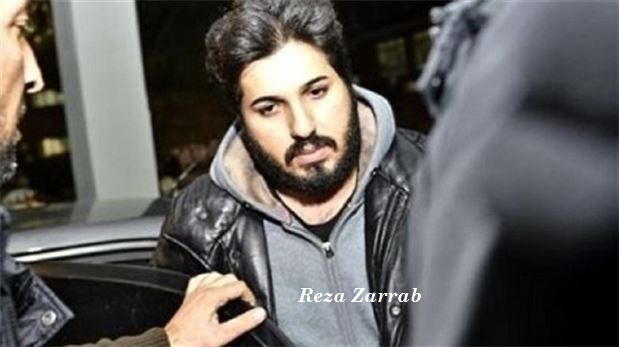
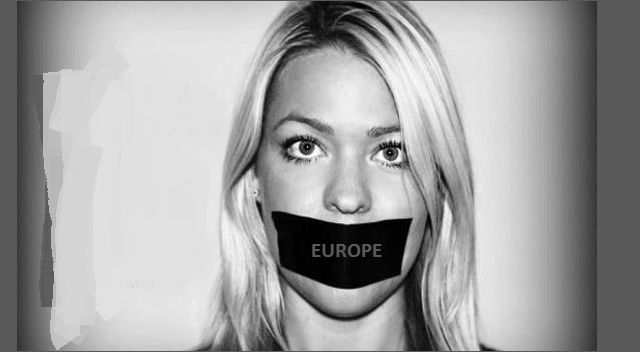
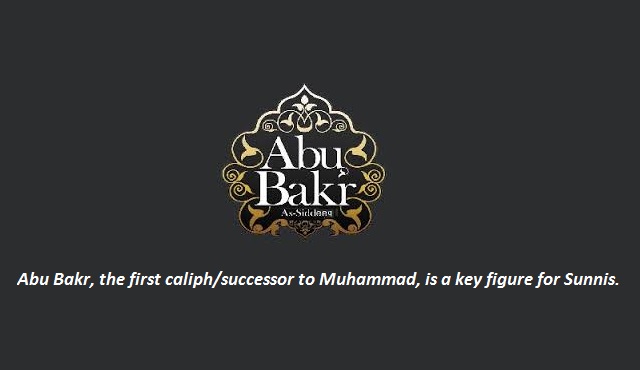





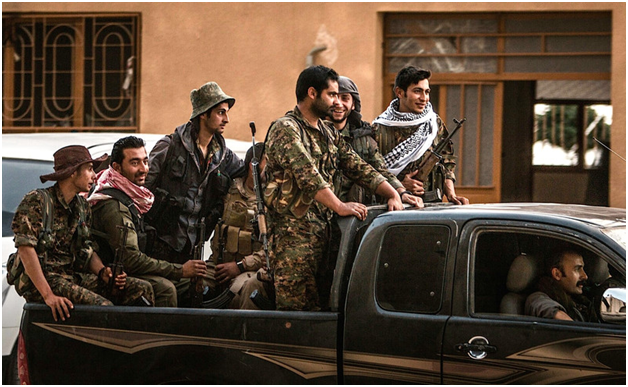
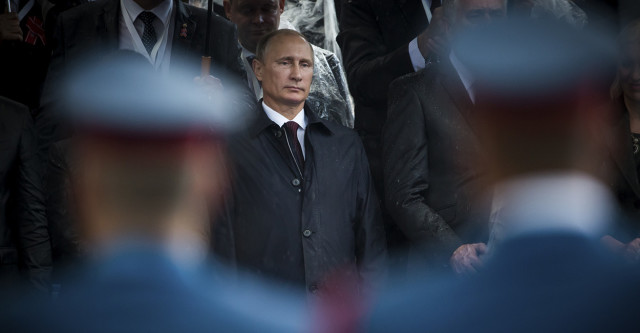


.jpg)


